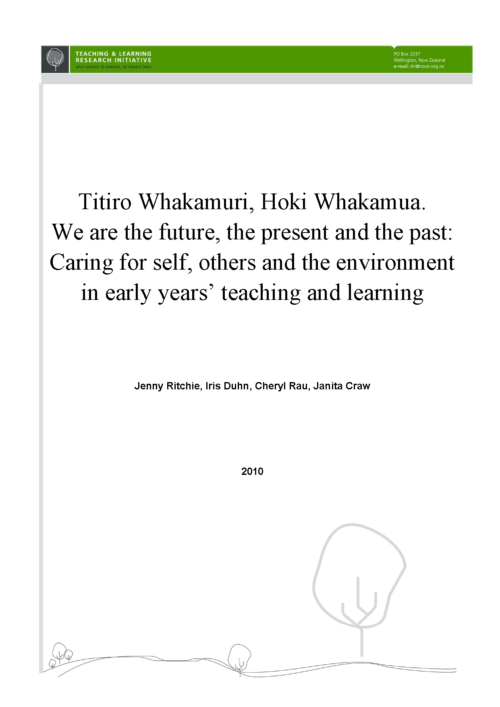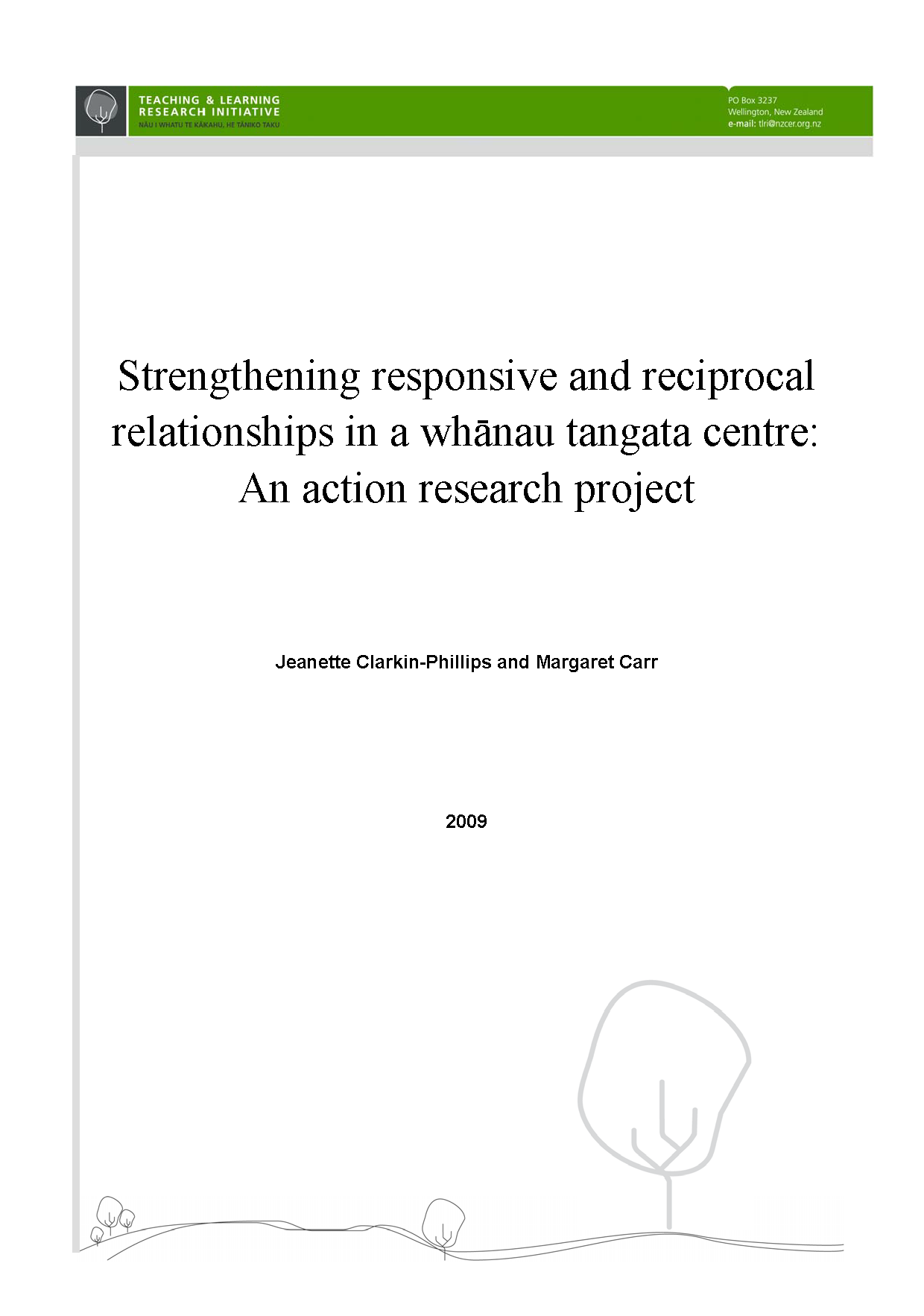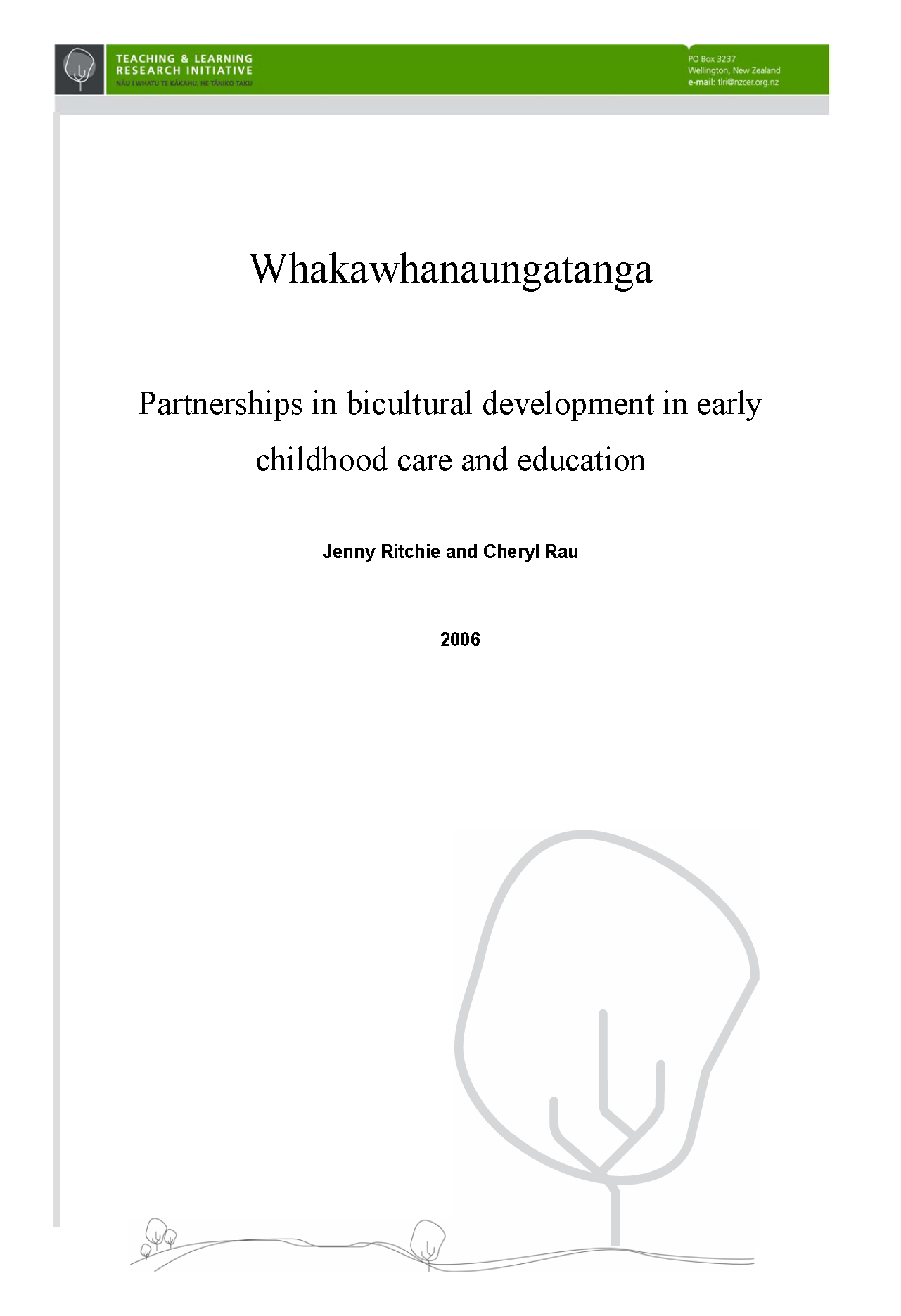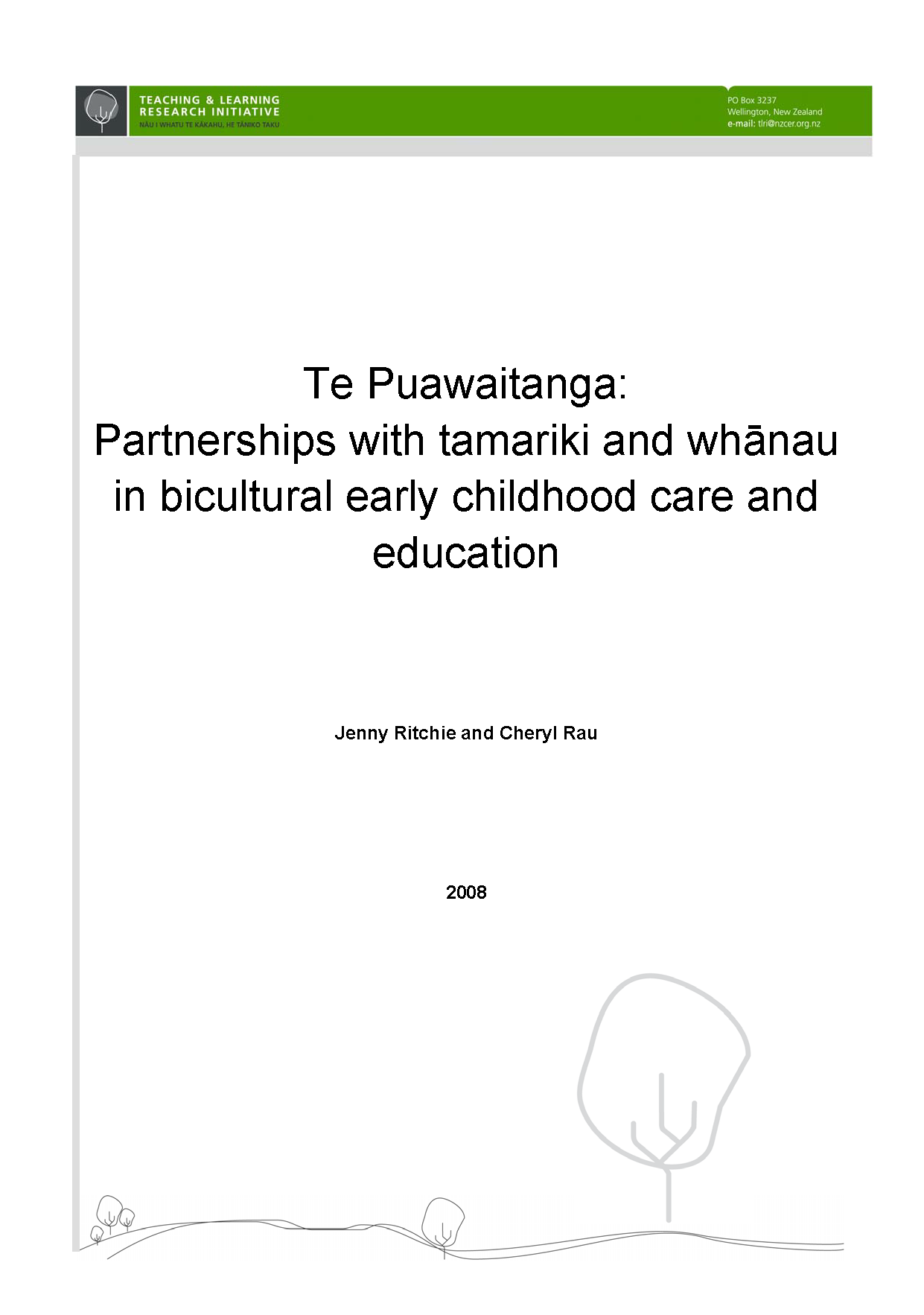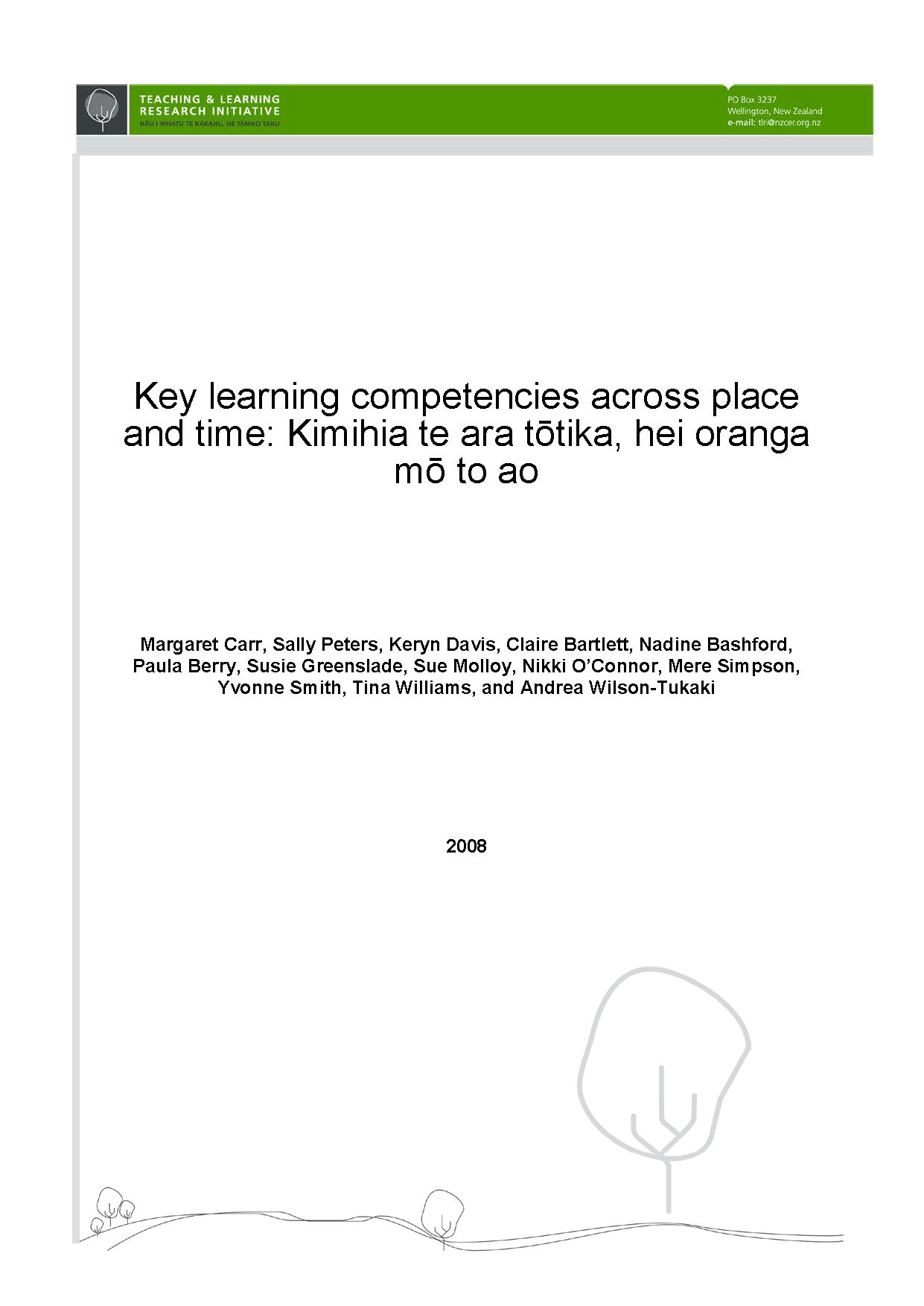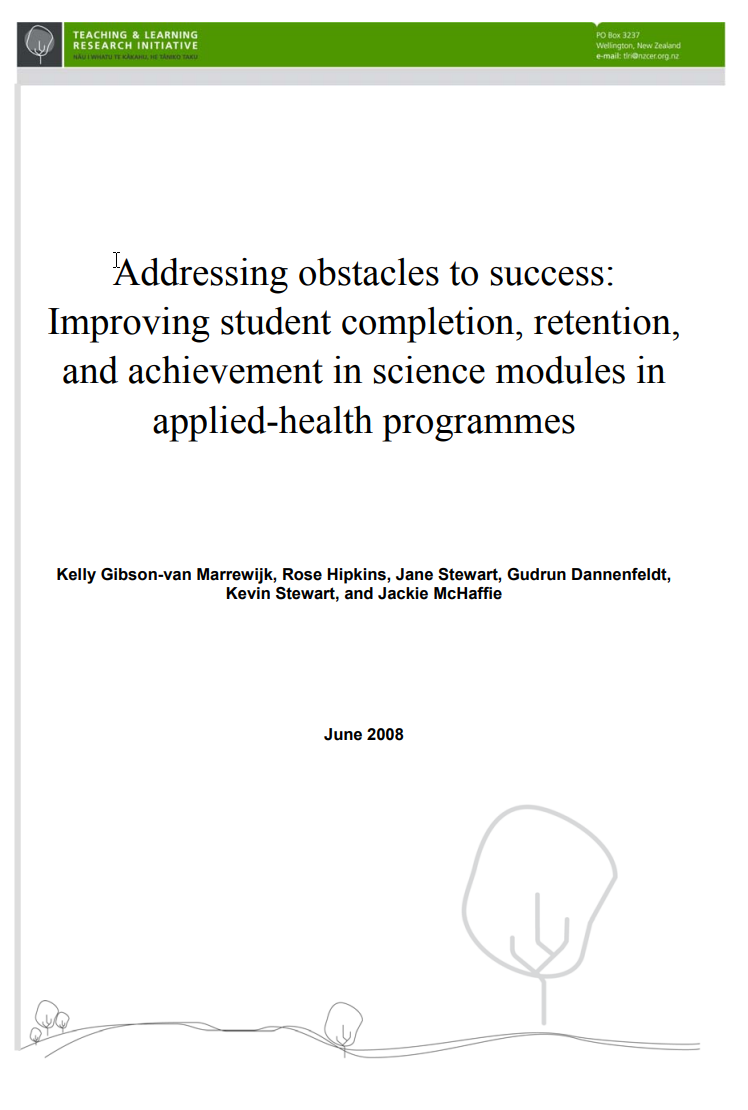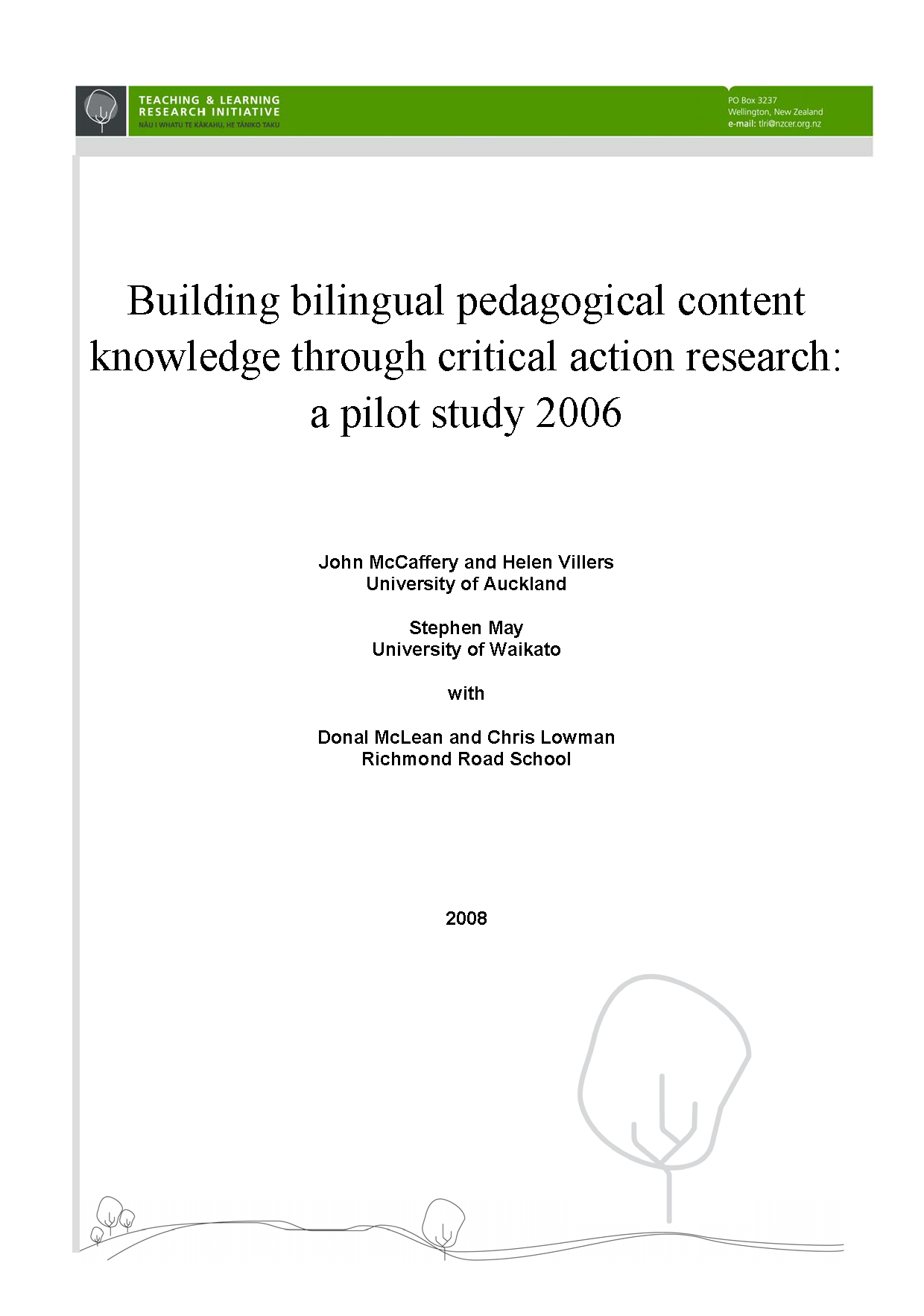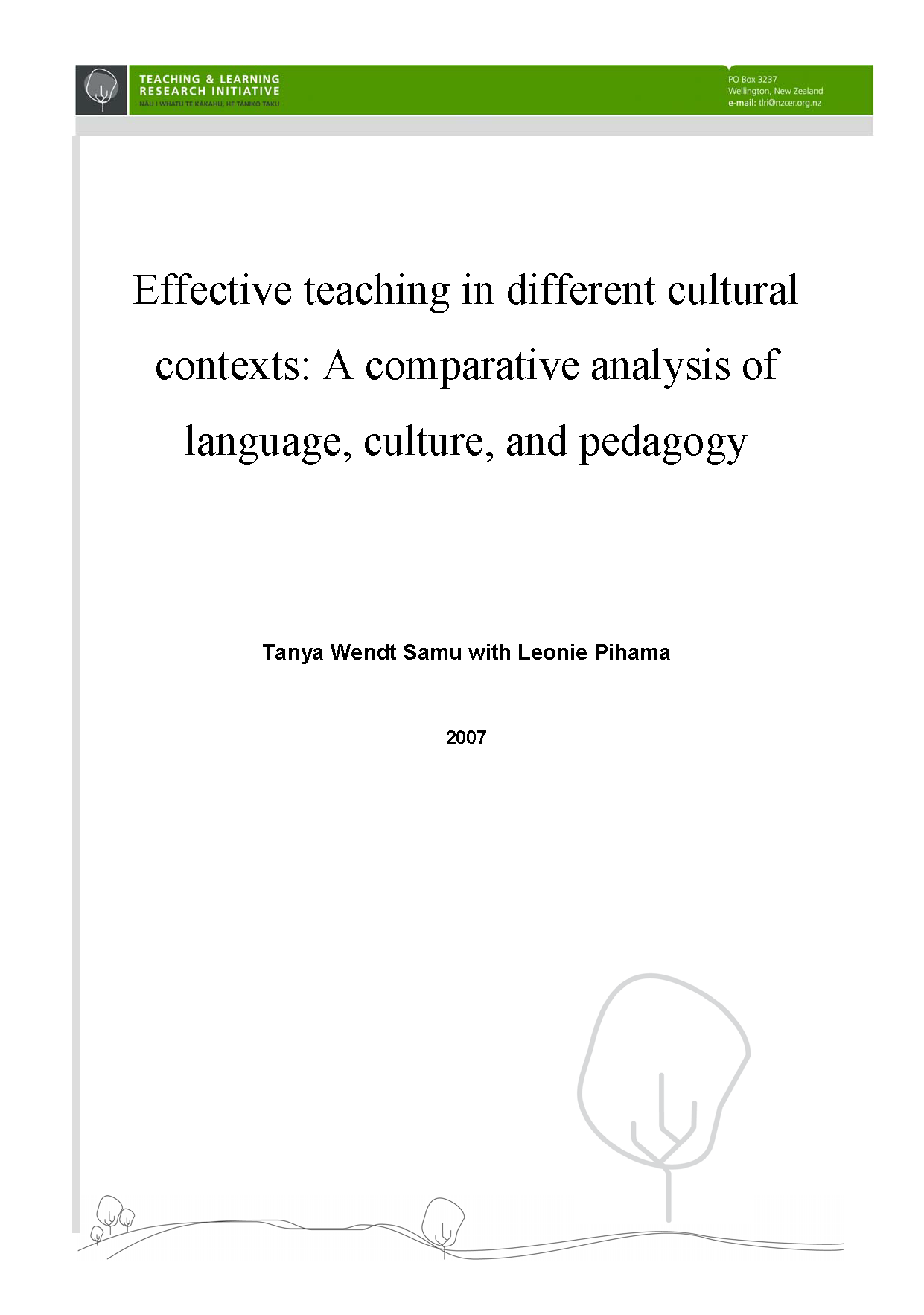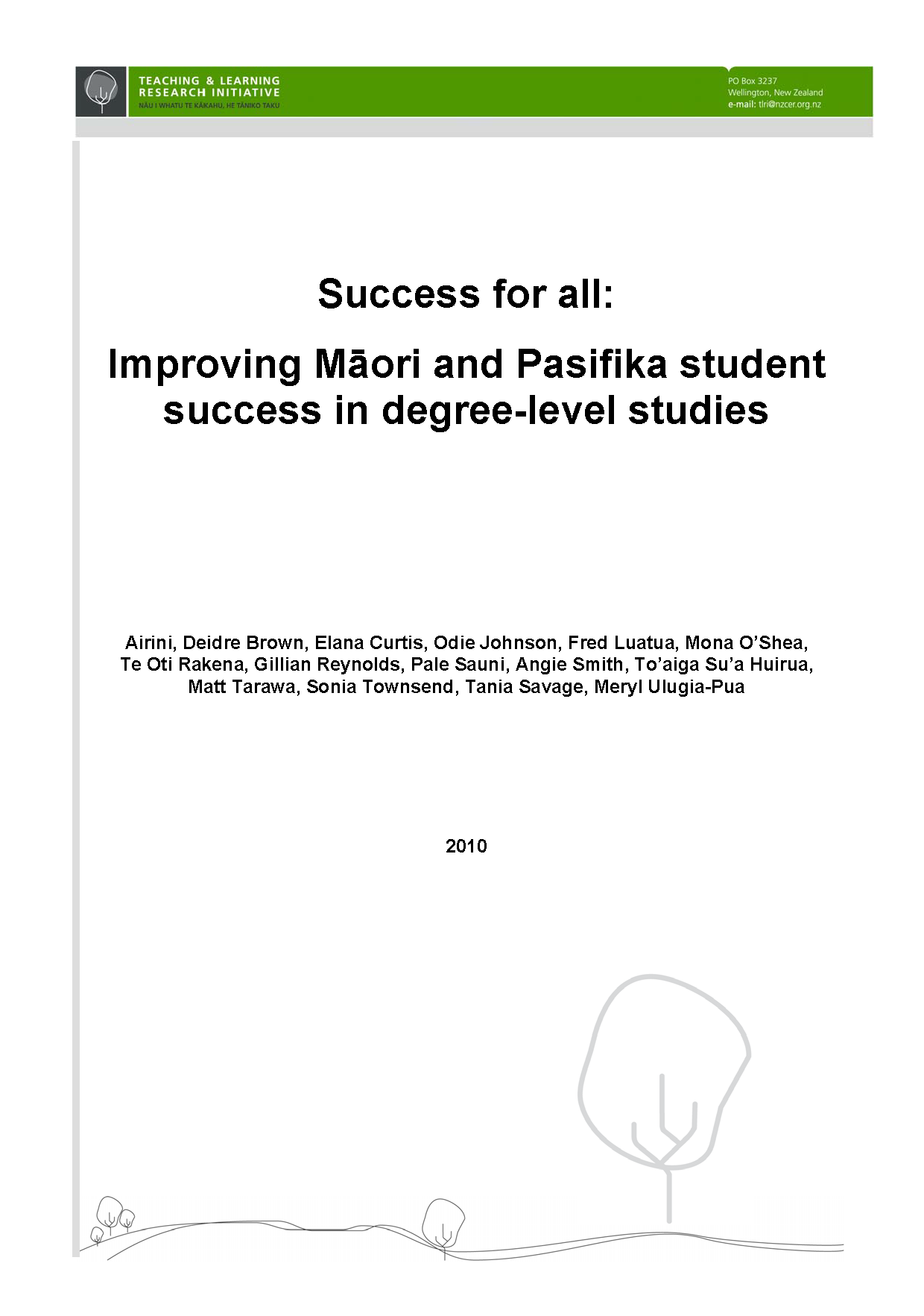
Success for all: Improving Māori and Pasifika student success in degree-level studies
1. Introduction The Success for All project sought to examine the ways in which nonlecture teaching helps or hinders Māori student and Pasifika student success in preparing for or completing degree-level studies. Good practice was to be identified. This report is the final in a series of detailed technical reports from UniServices prepared by the Success for All research team. Purpose The purpose of the Success for All research was four-fold: identify international best practice in nonlecture teaching and learning in university settings deliver high-quality research on the nature of nonlecture teaching and learning practices that help or hinder Māori and Pasifika student success in preparing for or completing degree-level study

